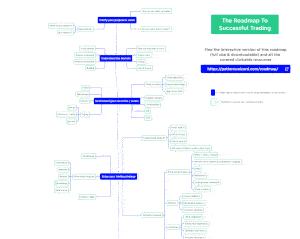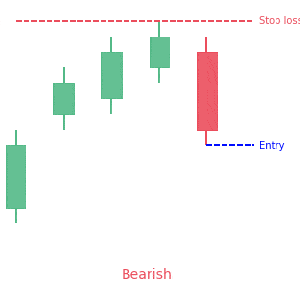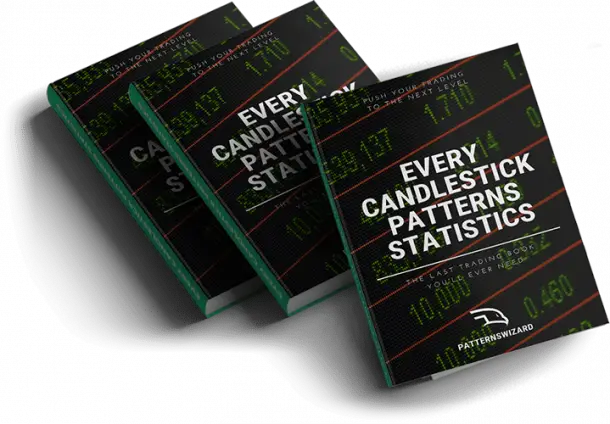The act of purchasing securities based on rumors, and then selling them once news breaks, may seem risky, but it can also be a smart move.
Most markets, particularly financial markets, operate on the principle of buying the rumor and selling the news. You can turn the concept into a trading procedure based on what traders consider will occur in the future.
Imagine a trader expecting the price of their asset to change in response to a certain financial statement or world event. It is during the rumor phase of the strategy that the dealer purchases an asset according to this instinct.
The news is public information once the event is over or the report has been released. Traders can then dump the trade, and the market reacts.
Why you can make Profit with Buy The Rumor Sell The News
Investors buy on the rumor, which means they treat forecasts prepared by economists and analysts as if the event had already occurred as predicted. As a result, the forecast is in the price. Resulting in the highly inflated price bar that the news produces.
You can use news about an event to sell it. Even when the news matches the forecast, there can be a paradoxical outlook where a price reaches a new high before the event and falls lower immediately afterward.
What it leads to
As a result of the early bird’s up move, the price has fallen. New lows are usually temporary. As a result, the forecast estimated good news, and it did happen.
Either way, for short-term traders who keep their finger on the trigger, buying on the rumor pays off. A difficult and risky business is evaluating forecasts and being mentally ready to buy or sell at the moment of impact. Risk-averse traders often stay away from the market during scheduled events.
What does Buy The Rumor Sell The News Mean?
In the context of trading, the phrase “Buy the rumor, sell the news” means that price will often rise in anticipation of good news that is due at some point, but not necessarily after.
Rumors tend to move market pricing in anticipation of an event. People who want to own the stock or currency already own it by the time the event occurs. The price goes up because no one will buy when the event occurs. This causes people to sell, hoping to make a profit.
Traders may say, “The information is baked in” if positive news comes out and stocks or other assets fall on the news. The price rise occurred before the good news, so the asset’s price already reflects the impact of that good news.
“Buy the Rumors, Sell the News”: How Does it Work?
Projected cash flows influence traders and investors alike in markets outside of the foreign exchange market (forex).
A company may generate more revenue than earlier thought. When dividends or stock prices increase, traders will purchase the stock instantly. Traders often act on expected interest rate moves instead of cash flows when dealing in forex.
Investors who seek undervalued markets use this approach. Rumors are when possible knowledge or information indicates the value of an asset might increase in the future.
The asset is believed to have more worth in the weeks and months to come. It will be bought by investors up until it ceases to be undervalued.
News that falls slightly below expectations will cause a selloff if the rumor is incorrect or traders have overbought the asset. You can sustain stock valuations only if a shock news event knocks the rumor. It could potentially boost the value even higher if a shock news experience is real enough.
Buy The Rumor Sell The News Strategies
- Trading on a stock split
Apple announced that it would split its stock in mid-2020. Stock splits result in a greater number of outstanding shares but a lower stock price.
Even though nothing has fundamentally changed in a company, stock splits are typically viewed favorably since the lower price tends to attract more investors and increase volume.
In the month leading up to the stock split, Apple’s stock price rose more than 40%. By the time the stock split occurred, everyone who wanted to own it was on board.
Analysts and traders were buzzing about how the stock split would propel the stock price higher, and investors piled in. However, the stock fell by more than 20% after the split.
- Forex trading
The financial world was shocked when fears of the Covid-19 pandemic surfaced in February 2020. Trading continued as before. Having assumed that the pandemic would be global, the Japanese yen (JPY) and Swiss franc (CHF) were bought as safe-haven currencies.
The USD/CHF fell as traders sold USDs and bought CHFs in response to the Coronavirus fears. The rumor of Covid-19 did not last much longer than the impact of Covid-19.
There was only a two-week decrease in USD/CHF. After more information about the virus was released, the price recovered completely from its decline. Trading the news involved buying the CHF and then selling it as soon as more news came out.
- Trading on earnings announcements
Because Apple is such a popular company and performs well, its earnings announcements are traded. In the months leading up to the first three earnings releases of 2021, the stock rose.
Apple was expected to report good earnings, so traders bought the rumor. Indeed, it beat analyst predictions by 18% to 48%. Yet each time, the price fell immediately after earnings.
They bought based on the expectation of good numbers. The up move had already occurred when the earnings were released, so selling increased.
Events to use this Strategy With
When there is a highly anticipated event in the future, traders use a buy the rumor, sell the news tactic. Examples include:
- Indicators of the economy, such as employment or inflation. In addition to providing information about what is happening with the economy, these data reports often have a significant impact.
- Analysts attempt to predict how a company’s earnings will perform based on earnings announcements scheduled for a predetermined date. If earnings will be good, traders will “buy the rumor.”
- In anticipation of a new product, people may buy the stock of a company that announces it will unveil it shortly.
- Central banks make regular announcements of interest rates.
What “Buy the Rumor, Sell the News” Implies
One of the biggest frustrations for traders is purchasing something they believe to be proficient only to view it drop value during a sell-off. It could be due to variations in how dealers process data, among many other factors.
When that occurs, one dealer takes time to understand the data before doing a deal, while others act swiftly as soon as rumors start spreading. Liquidity is often provided by slow-to-act merchants to informed traders. As a result, traders profit from “rumor” or “news.”
Conclusion
The worst time to enter the market is when a great news announcement comes out, and the price increases as a result. When everyone else is getting out of the market to reap a profit, everyone who acquired the assets at the cheaper price is doing the same thing.
An origin of liquidity for other merchants is one of the more frustrating aspects of forex trading. Holding out after good news can help you avoid this fate. Buying at a more favorable price can be more beneficial if the price direction changes briefly.

 Good Trading requires the Best Charting Tool!
Good Trading requires the Best Charting Tool!

 We loved Marwood Research’s course “Candlestick Analysis For Professional Traders“. Do you want to follow a great video course and deep dive into 26 candlestick patterns (and compare their success rates)? Then make sure to check this course!
We loved Marwood Research’s course “Candlestick Analysis For Professional Traders“. Do you want to follow a great video course and deep dive into 26 candlestick patterns (and compare their success rates)? Then make sure to check this course!